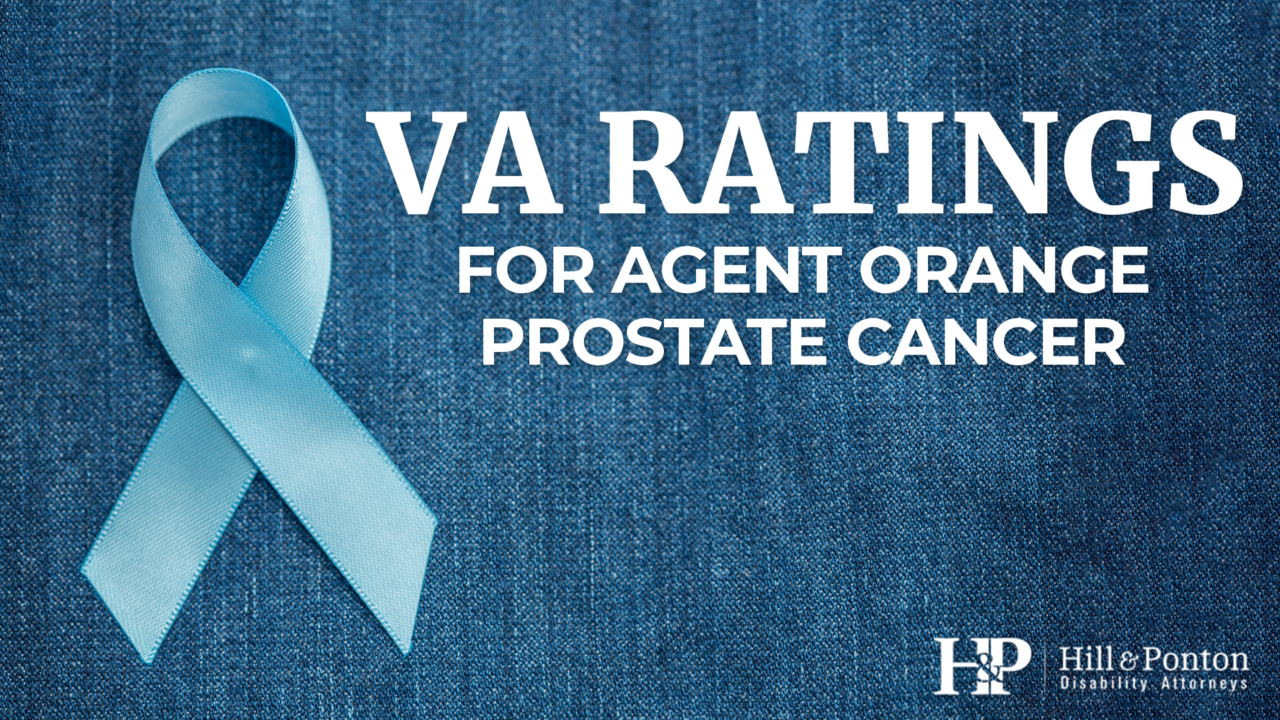Prostate cancer is the second leading cause of male cancer-related deaths in the United States. According to the American Cancer Society, about one in nine men will be diagnosed with this disease during his lifetime. The average individual is diagnosed while in their 60’s. Unfortunately, many Vietnam veterans exposed to Agent Orange are now suffering from many adverse health effects as a result of the veteran’s service such as chloracne, Parkinson’s disease, Bladder Cancer, respiratory cancers, lung cancer, skin cancer, other types of cancer among other devastating health conditions. However, the focus of this blog will primarily be on prostate cancer as just one Agent Orange disease.
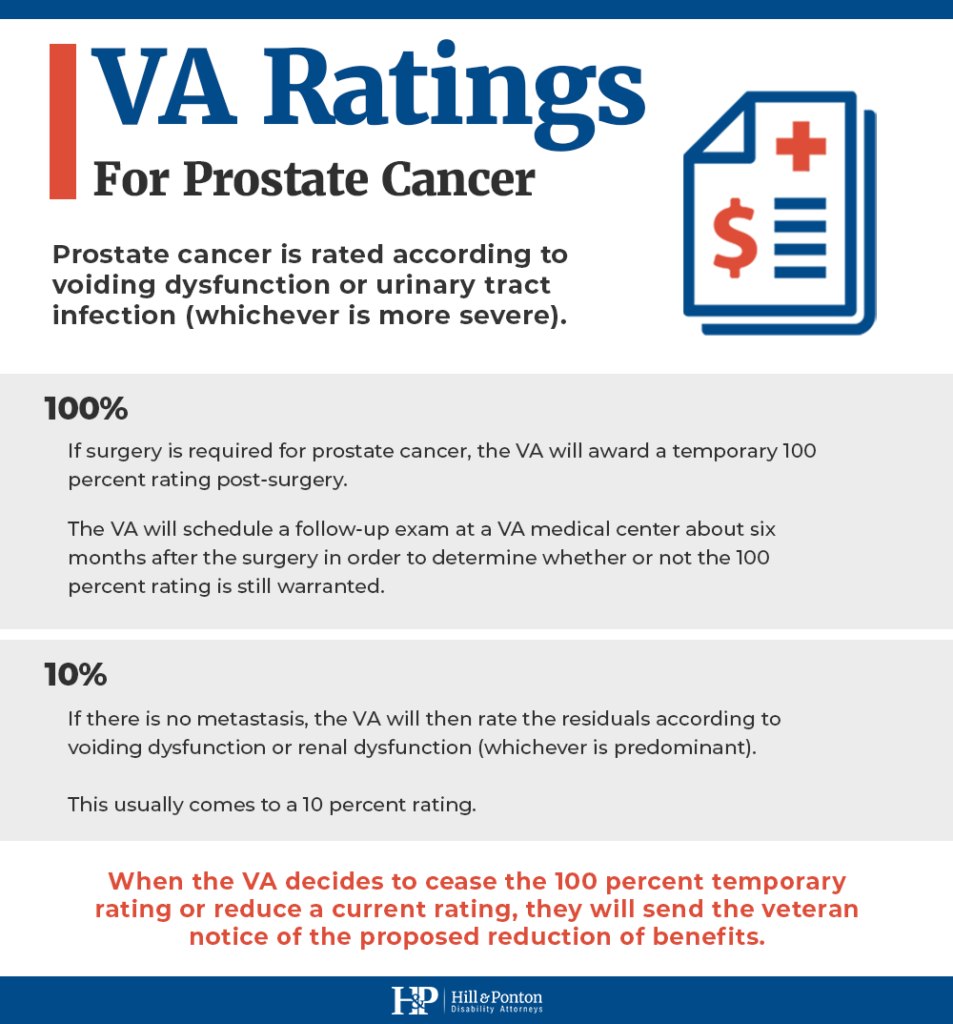
The prostate gland is located under the bladder. Prostate cancer cells start on this organ and may spread to other parts of the body. It can be difficult to diagnose prostate cancer since it typically doesn’t show early symptoms. So, regular screenings are key. Cancer risk factors for prostate cancer include family history and age. It’s also common in African-American and Afro-Caribbean men.
Exposure to certain chemicals, such as defoliants like Agent Orange, may also put individuals at risk for prostate cancer. This is why Vietnam War veterans need to be aware of the U.S. Department of Veterans Affairs’ stance on prostate cancer and Agent Orange exposure as well as general herbicide exposure during the Vietnam War and the harm it caused to public health. You can learn more about Agent Orange benefits here!
This guide will outline how the VA diagnostic codes rate prostate cancer for disability compensation claims, as well as what Vietnam veterans should know when seeking a rating decision for their VA benefits.
How The VA Rates Prostate Cancer
The VA has established a rating system for prostate cancer based on the severity of the symptoms. This rating system falls under genitourinary conditions (38 CFR §4.115a). Prostate cancer is rated according to voiding dysfunction or urinary tract infection (whichever is more severe).
If surgery is required for prostate cancer, the VA will award a temporary 100 percent rating post-surgery. The VA will schedule a follow-up exam at a VA medical center about six months after the surgery (sometimes this exam falls almost a year after the surgery) in order to determine whether or not the 100 percent rating is still warranted.
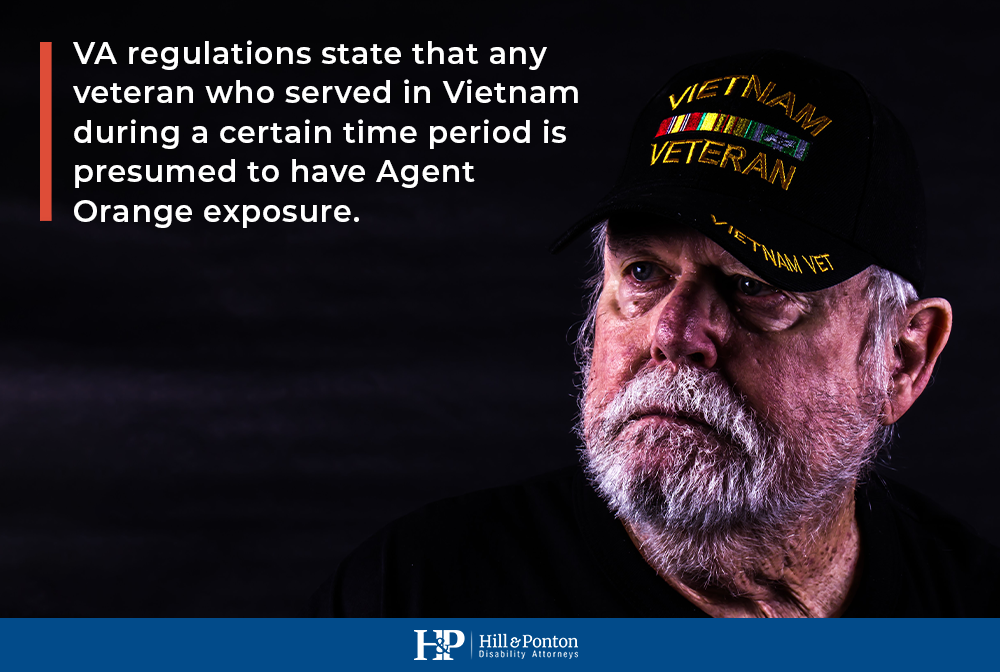
If there is no metastasis, the VA will then rate the residuals according to voiding dysfunction or renal dysfunction (whichever is predominant). This usually comes to a 10 percent rating. Court cases have determined that the VA can reduce the 100 percent rating only after the cessation of surgical, X-ray, antineoplastic chemotherapy, or other therapeutic procedure. The term “therapeutic” according to DC 7528 is interpreted as the procedure to cure cancer.
When the VA decides to cease the 100 percent temporary rating or reduce a current rating, they will send the veteran notice of the proposed reduction of benefits. The letter will most likely give the veteran a deadline to respond. If the veteran is still experiencing disabling symptoms of prostate cancer and believes that he is still entitled to the current rating, he should have his doctor fill out the Form 21-0960J-3, Disability Benefits Questionnaire for Prostate Cancer. This form, completed by the health care provider, would serve as evidence to support the veteran’s claims that he is entitled to the current rating.
Vietnam Veterans & Prostate Cancer
Veterans who served in Vietnam are now reaching their mid-60’s, which is the age at which prostate cancer is usually diagnosed. This means that we are seeing an influx of prostate cancer cases.
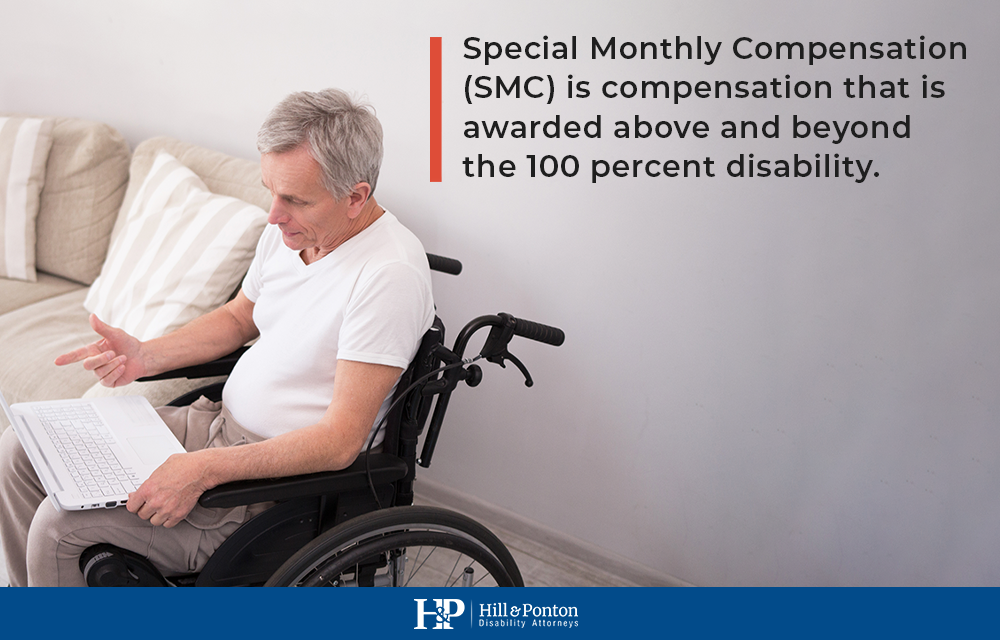
Roughly eighty-nine million men in the US served during the Vietnam War with approximately 2.7 million Americans serving in Vietnam. According to recent studies, almost 1.4 million men are predicted to develop prostate cancer in their lifetime. A 2013 study conducted at the Portland VA Medical Center and Oregon Health and Science University found that Veterans exposed to Agent Orange are not only at higher risk for prostate cancer, but they also have an increased risk for more aggressive forms of the disease.
Agent Orange, as we have discussed in previous Agent Orange blog posts, has been found to cause many serious health problems including cardiovascular problems and genitourinary system problems. The VA has found sufficient evidence of an association with certain conditions so they have recognized fourteen different diseases and types of cancer as related to Agent Orange exposure. These conditions are considered “presumptive diseases,” meaning that the VA will grant service-connection for these conditions as long as the veteran was in Vietnam. Some other diseases on this list include non-Hodgkin’s lymphoma (also known as non-Hodgkin Lymphoma), soft tissue sarcoma, erectile dysfunction or incontinence, hypertension, porphyria cutanea tarda, multiple myeloma, and ischemic heart disease.
The VA regulations mandate that any veteran who served in Vietnam (or, now, in some other areas where Agent Orange was stored or sprayed) during the relevant time period is presumed to have been exposed to Agent Orange. Under upcoming expected changes to VA law, Blue Water veterans who served on ships that were docked in certain harbors will soon be added to the list of veterans who are presumed to have been exposed to Agent Orange.
Prostate cancer is one of the diseases on this presumptive list. Research has shown that Agent Orange was contaminated with the toxin 2,3,7,8-tetrachlorodibenzo-p-dioxin (TCDD) as a by-product of chemical manufacturing and that this toxin is a suspected carcinogen or cause of cancer.
Individual Unemployability & Special Monthly Compensation for Prostate Cancer
For Blue Water Navy veterans who are finally able to take advantage of the presumption of service connection for prostate cancer based on Agent Orange exposure, it is important to make sure that the VA has rated your condition correctly and has not reduced your benefits if you are still entitled to them. It is also important to submit VA claims for a secondary service connection for any conditions that are caused by your prostate cancer. You should also apply for a Total Disability Rating based on Individual Unemployability if your prostate cancer prevents you from obtaining and maintaining a gainful occupation. If you are experiencing unemployment as a residual of prostate cancer, it is important to file a claim for individual unemployability with the VA, not only so you receive benefits at the 100 percent rate, but so you can receive Special Monthly Compensation as well.
Vietnam Veterans & Prostate Cancer
Special Monthly Compensation (SMC) is compensation that is awarded above and beyond the 100 percent disability impairment payments awarded for conditions that are more serious and more debilitating than the 100 percent rate is able to compensate. For instance, you may be eligible for SMC if you are housebound or need aid and attendance. Or, you may be able to receive SMC for the loss of use of a creative organ. Note that SMC is not a separate disability claim, and is instead part of the original appeal. When you appeal for an increased rating from the board of veterans appeals for prostate cancer, it is a good idea to also appeal for individual unemployability and any SMC to which you are entitled.
Prostate Cancer in Blue Water Navy and Thailand Veterans
Blue Water Navy veterans who served in Vietnamese waters within the specified zone will finally be eligible as claimants for presumptive service connection under the expected changes to VA law. It is important to know what benefits are available to you so you do not leave any benefits that you are owed on the table. Additionally, it has been shown that there was Agent Orange use in Thailand where some of our US Air Force veterans were exposed to the herbicide. If you were in Thailand during the Vietnam War you may have an entitlement to Agent Orange-related VA disability benefits.
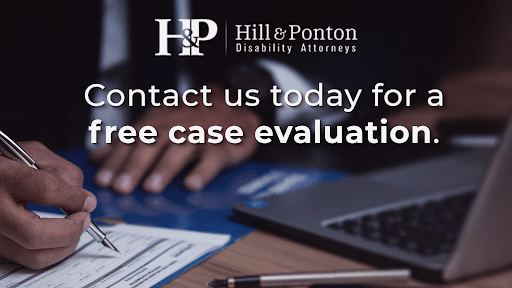
The attorneys at Hill & Ponton specialize in veterans law and are available to help U.S. military veterans seek VA disability compensation, with their regional office, for conditions connected to military service. If you are a Vietnam veteran experiencing prostate cancer, contact us today for a free case evaluation.
